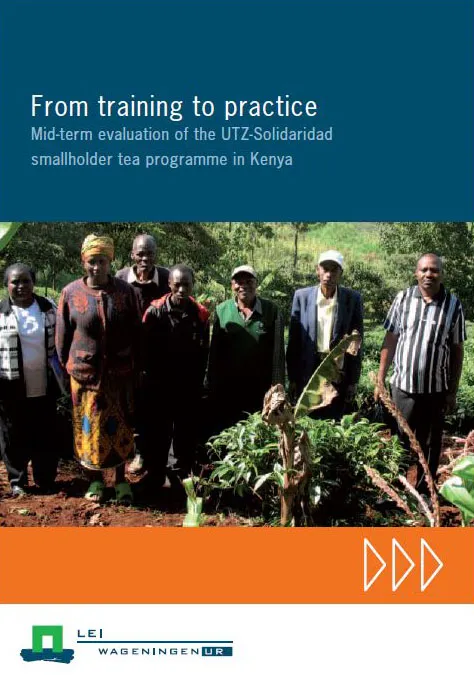From Training to Practice: Mid-term Evaluation of the UTZ-Solidaridad Smallholder Tea Programme in Kenya
This independent evaluation compared the situation of certified tea farmers in Kenya between 2010 and 201 and took into account external factors which could also have influenced the outcomes. The certification program in Kenya aims to improve sustainability in the tea sector and supports smallholder tea farmers to implement better farming and management practices, by implementing the UTZ standard. The UTZ - Solidaridad program in Kenya reached a representative group of smallholder tea farmers: at least 45% of all 33.000 targeted farmers were trained.
According to this study 65% of the outcome indicators showed statistically significant positive changes. Between 2010 and 2012 certified farmers improved their knowledge on sustainable tea production and their record keeping. They also made better informed decisions on farm management, diversified their income, adopted more sustainable practices, improved conservation practices and have healthier and safer working and living conditions. The relationship between farmers and tea factory managers also improved. These positive changes in knowledge, agricultural practices, productivity and income are attributed to the UTZ-Solidaridad program in combination.
Certification motivates farmers to implement better practices. It is also a way to access markets and sell tea with a premium, although not all certified tea has been sold as certified, due to low market demand.
